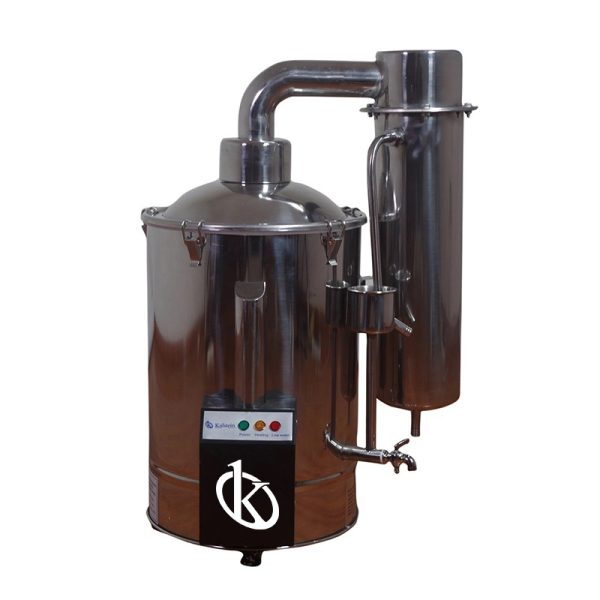Water distillers are essential equipment in the laboratory, as they make it possible to obtain pure, high-quality water for various scientific applications. These devices work through the distillation process, which consists of the evaporation of water, followed by its condensation and subsequent collection.
Water distillers are essential tools in the laboratory, as they provide pure and high quality water for various scientific applications. Their operation is based on the distillation process, which removes impurities and contaminants present in the original water. In addition, they have safety features that protect the user and ensure proper operation of the equipment.
By using water distillers in the laboratory, significant advantages are obtained, such as pure and high quality water for experiments, long-term economic savings and environmental protection by reducing the generation of plastic waste.
Operation and main features
Laboratory water distillers consist of a number of basic components, including a heater, evaporator, condenser and distilled water collector. The heater is responsible for raising the temperature of the water to boiling point, while the evaporator converts the water to steam. The steam is then directed to the condenser, where it is cooled and converted back to liquid water. Finally, the distilled water is collected and stored in the collector.
One of the main features of water distillers in the laboratory is their ability to remove impurities and contaminants present in the original water. Through the distillation process, salts, minerals, bacteria, viruses, pesticides and other undesirable chemical components are removed. This ensures that the water obtained is of high purity and suitable for use in sensitive scientific experiments. Laboratory water distillers are also equipped with safety systems to ensure proper operation and to protect the user.
Some of these features include
Overheating protection: Water distillers are equipped with safety thermostats that prevent the equipment from overheating. These devices detect the water temperature and, if it exceeds a preset limit, automatically shut off the heater. This prevents damage to the system and minimizes the risk of fire or explosion.
Water purge system: Some water distillers in the laboratory have a purge system that allows the removal of any residue or mineral buildup in the equipment. This feature is especially useful when water distillers are used intensively, as it helps to maintain optimum performance and prolong the life of the equipment.
Visual and audible indicators: For ease of use and to ensure safety, many water distillers in the laboratory are equipped with visual and audible indicators. These may include LED lights that indicate the operating status of the equipment, audible alarms that warn of potential problems or even digital displays that show relevant information, such as water temperature or remaining distillation time.
Advantages of using water distillers in the laboratory
The use of water distillers in the laboratory offers numerous advantages, both in terms of safety and the quality of the results obtained. Some of the main advantages include:
Pure, high-quality water: water distillers ensure that pure, impurity-free water is obtained. This is essential in many scientific experiments, where even small amounts of contaminants can alter the results. In addition, distilled water is free of salts and minerals, which prevents the formation of scale in the equipment and prolongs its service life.
Economic savings: Using water distillers in the laboratory makes it possible to dispense with the purchase of bottled water or other expensive purification systems. This results in long-term economic savings, especially in laboratories that require large quantities of pure water on a regular basis.
Environmental protection: Using water distillers in the laboratory is also environmentally friendly. Instead of generating plastic waste from bottled water bottles, distilled water can be used directly from the equipment, reducing the carbon footprint and promoting sustainable practices.
The future at Kalstein
In conclusion, it is crucial to have water distillers in the laboratory to ensure the quality and purity of the water used in the various scientific processes. This equipment provides a reliable source of distilled water, eliminating impurities and contaminants, and offering benefits such as safety and environmental protection. Therefore, investing in water distillers is a smart and necessary investment for any scientific laboratory.
KALSTEIN simplifies the options by offering the best offers and quotes. Visit us HERE where you will find the different YR models of water distillers, which are available for any requirement of laboratories, in addition to having the best advisors to accompany you during the purchase process; we besides being manufacturers of laboratory equipment, we have for you a 3D platform, where users, manufacturers and distributors can sell, rent or offer new or used equipment anywhere in the world, enjoy being seen, you are more.

